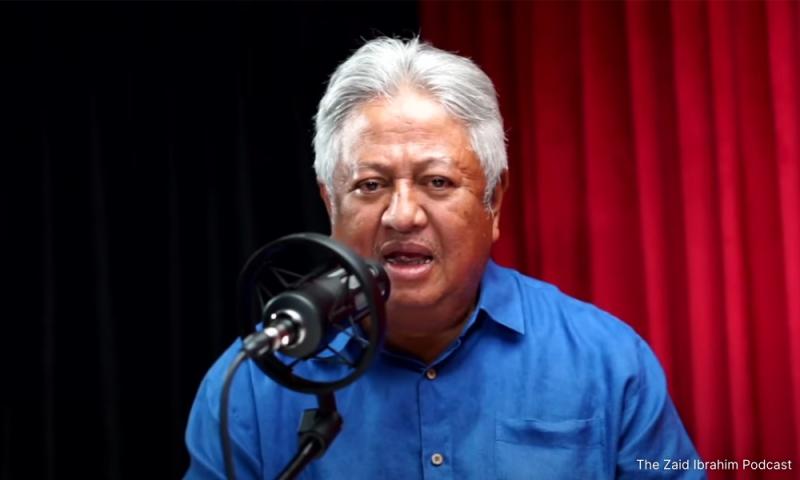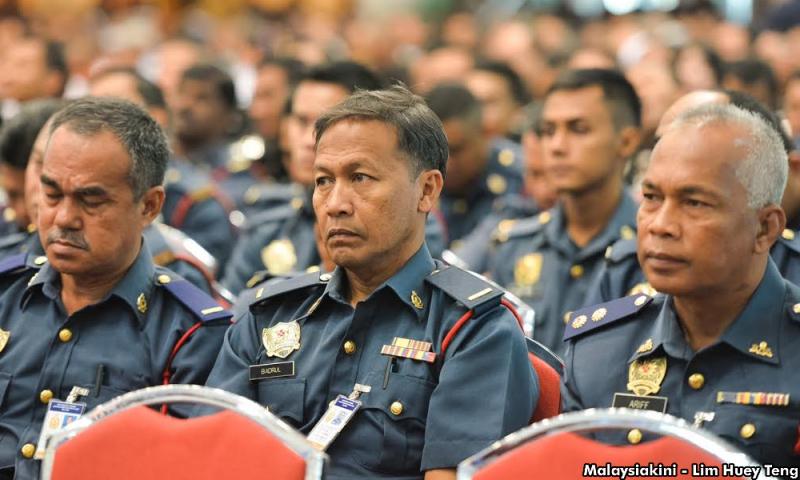In the early 1980s, we at the National Institute for Public Administration (INTAN) hosted Professor Milton J Esman, one of two American professors who came to Malaysia as consultants to the government of Tun Abdul Razak, after the challenges of May 13th 1969, and introduced the concept of “development administration” to Malaysia.
Their views, and full appreciation of public administration in Malaysia is well recorded in a 1972 book entitled ‘Administration and Development in Malaysia: Institution Building and Reform in a Plural Society’ by Milton J Esman.
I have argued elsewhere that their book was framed within the full context of the New Economic Policy, and what I have since positively labelled as the Growth with Equity Model, or the Malaysian GEM.
The NEP was surely our gem. No other country in the world has, in one generation, moved an entire community of agricultural peoples to become an engineering and computing community.
In 1970 and within the context of our then “Emergency”, partisan politics was right for Tunku Abdul Rahman to step down and for Abdul Razak Hussein to become the second prime minister.
That history is well captured in Kua Kia Soong’s book. Our school history books may record a slightly different public narrative of the same reality, though. Kia Soong’s book was based on documentary research of British documents unveiled after 50 years of “secrecy.”
Abdul Razak then faced his biggest and most emotional challenge of our first significant political differences of worldviews, since the becoming of the bigger Malaysia from the Federation of Malaya in 1963.
Rather unfortunately, he died too early. He had been a career public official before he entered politics.
Public service as a career
This past week, CNN aired a one-hour documentary of the firing of the acting attorney-general of United States, Sally Yates, by the president of the United States of America (Potus). She refused to support or defend the “now-illegal executive orders of Potus”.
After all, the media entertainer Trump was already used to saying, “you are fired!”. Except he is on the screen for different reasons now.
Sally Yates is a career public servant in the Department of Justice and served 27 years. It was made clear from the documentary that she was determined to remain a neutral public servant and was unconcerned with “localised political truths”.
She refused to comment about views from the White House. The courts, however, have agreed with her to date.
To frame all that into their newer context, the current deputy head of the Justice Department has unilaterally appointed a new public prosecutor to investigate the apparent Russian collusion report after the Trump-appointed judge Jeff Sessions recused himself.
The deputy secretary of the justice department, much like Sally Yates, or former FBI director James Comey, is a career public servant who is not directly involved in partisan politics.
Such professional public servants are usually politically astute enough and aware of real politics on the ground!
Malaysian public service
Malaysian public service, much like the British parliamentary Westminster system, also has a professional public service. PMs Abdul Razak and Abdullah Ahmad Badawi were in fact ex-PTD officers too!
Ours is called the PTD Service, or in English, the Diplomatic and Administrative Service. It is also a neutral and non-partisan public service; whose primary role and assignment is as policy advisors to the government of the day.
In fact, senior public servants cannot be members of any of the parties of the government or opposition. This has however not been well-monitored in the recent past. Maybe Abdul Razak and Abdullah were good examples of the early years, but cannot anymore be considered good and valid examples.
The cabinet secretary, consequently as the secretary to the cabinet and head of all public services, is the chief executive officer for good and professional governance within all levels of government; whether at federal, state, or local levels.
This includes the military, or police, or Attorney-General Chambers, or education, or medical, and foreign services. Politicians are not public officials.
The PTD officers consequentially fill leadership positions of all ministries and departments with the specific role of public policy formulation.
Therefore, in the real-politic sense, the PTD service and the chief secretary is the exact parallel of the full cabinet of ministers with only one exception; the public servants are neutral professionals appointed into public office by a commission.
In many cases, the professional PTD officers are better trained and qualified than most politicians. With some exceptions also; for example, all mayors are PTD officers, and so also are most state secretaries and district officers.
CEOs of public agencies are also PTD officers. The same is true of most if not all high commissioners and ambassadors.
Therefore, the PTD officer’s role is always focused on professional policy-making and policy formulation; exactly like any other professional service.
The only difference that the PTD is not yet officially recognised as a licensed practice with a strict code of ethics with an oversight body and a formalized legal professional code of conduct and ethics.
Partisan politics and administration
Unlike the American system of democracy with separation of powers between the executive, judiciary and the legislature, the Malaysian system does not have such explicit rules and separation of powers.
Especially over the last 50 years, the government in power has increasingly co-opted the members of the public service (both PTD officers and other professional officers) into their areas and arenas of partisan influence.
As a former public servant who has observed and experienced such abuse of power, I have even formally registered my complaint at the Parliamentary Committee on Integrity in 2006.
I therefore would like to raise some public policy matters and raise some questions for our consideration about the nature and quality of the current governance of our public administration system; as historically provided by UMNO leadership of the federal government:
- Why has the Public Services Department, as the chief human resource management agency of the federal government of Malaysia, never been headed by any non-Malays of peninsular Malaysia or even the bumiputras of Sabah and Sarawak?
- Why has no non-Malay finance minister even been appointed to lead the Finance Ministry ever since Tan Siew Sin was appointed in the early years?
- Why have all the big budget ministries also always been given to UMNO members and Malay members of the PTD service? Is it then any wonder then why the auditor-general’s report has never been taken seriously by both the federal government and also the parliament?
- The attorney-general’s report has repeatedly failed to make an impact about abuse of the tender system over so many years, but that has never challenged Umno or Umno-aligned PTD appointees to bring about the needed changes to avoid repetitive complaints?
- Corruption and abuse of power has today become the dominant culture of our public services, as is obvious from the arrests being made daily by the MACC. My question is, why is the MACC therefore afraid to investigate links between the corrupt officials and the Umno cronies who get the licences for all these corrupt deals, whether in the Land Office, or various levels of the police force, or Immigration or in Sabah or Sarawak?
KJ JOHN, PhD, was in public service for 32 years having served as a researcher, trainer, and policy adviser to the International Trade and Industry Ministry and the National IT Council (NITC) of the government of Malaysia. The views expressed here are his personal views and not those of any institution he is involved with. Write to him at kjjohn@ohmsi.net with any feedback or views.
The views expressed here are those of the author/contributor and do not necessarily represent the views of Malaysiakini.






